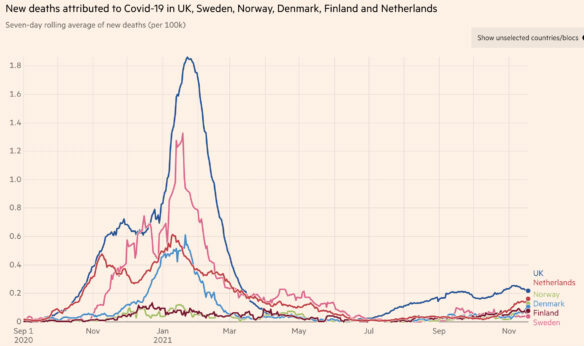In 1951, a psychologist named Solomon Asch performed a conformity test to study how willing people are to go along with the crowd, even when they know the crowd is wrong.
Students were told they were part of a “vision test.” Prof. Asch put one naive participant in a room with seven confederates who were in league with the professor. The confederates had agreed in advance how to answer the question in the vision test. The participants were asked to compare the length of lines, in which it was obvious that there was only one correct answer. But the seven confederates would insist on incorrect answers, and in some cases 75 percent of the naive participants would agree to go along with the crowd in giving an incorrect answer even though they knew it was wrong.
To be “Asch negative,” you need to be the type of person willing to go against the crowd, often at the cost of being publicly embarrassed. You must be strong enough in your convictions that you will not be influenced by peer pressure.
In short, you would have to be the type of person not to abandon the Savior in His moment of public humiliation or to abandon Joseph Smith when most people in society hated him.
Most people reading this are saying to themselves that they would never bow to peer pressure, but you may want to consider the story of Peter denying the Savior three times. The reality is that we all are more likely to influenced by peer pressure than we think.
The French philosopher Rene Girard has considered this issue in depth and written extensively on the unfortunate historical tendency of people to engage in witch hunts. Girard sees the Atonement of Christ example of a classic witch hunt in which the leadership of a society used Jesus as a scapegoat for all of their problems. The Pharisees succeeded in stirring up the crowd against Jesus, even though there is no evidence he did anything wrong.
Girard’s point is that this happens in societies all of the time. For a variety of reasons, leaders afraid of losing power often try to find scapegoats to blame for societal ills. Most readers can see how this applied historically to the Jews, who have blamed for societal problems in Spain, Russia, Germany, Eastern Europe and just about everywhere else they lived in the diaspora.
Girard, if he were alive today, would not be surprised by the rise of cancel culture, which he described throughout history. Social media has made cancel culture one of the most prominent features of modern life.





